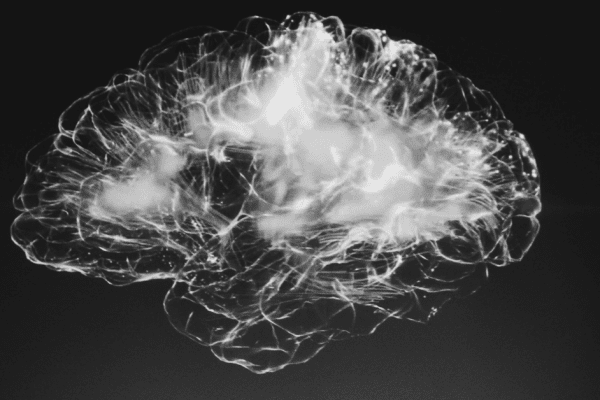
It’s a difficult, distressing, and often scary time supporting your loved one, family member or friend through an eating disorder such as anorexia, bulimia, binge eating disorder, selective eating disorder, or any other eating disorder.
If you’re wondering how to help someone with an eating disorder, it’s important to know that support will look different in every situation. The insidious nature of eating disorders can make it feel very difficult to help the person in need, despite the best intentions of those around the individual. For this reason, eating disorders affect not just the person but their families, friends, and all those people around them who care.
Recovery from an eating disorder can take years, and the journey can be mentally and emotionally challenging and draining for support people.
“Consistent, non-judgmental eating disorder help is critical to recovery,” says Dr Leanne Barron, a general practitioner with a special interest in eating disorders at The Banyans Health and Wellness. “Treatment programs tend to have a significantly greater impact if support people are part of the journey. Everyone deserves to have someone helping them recover. It’s important to treat those with an eating disorder with kindness and patience. Accepting this period of time will be very difficult can help ease your own feelings of burden.
“Consistent, non-judgmental eating disorder help is critical to recovery”
DR LEANNE BARRON
GENERAL PRACTITIONER WITH A SPECIAL INTEREST IN EATING DISORDERS
Eating Disorder Help: Understanding the Condition
Eating disorders such as anorexia, bulimia, binge eating disorder, selective eating disorder, disordered eating, and other eating disorders affect one million Australians at any one time. Along with substance misuse, eating disorders have the highest mortality rate of all mental health disorders.
Anorexia nervosa has the highest death rate – 20% in 20 years – of all mental illnesses. For patients with anorexia, death from physical causes is five times more than expected in this age group and death by suicide is 32 times more than expected.
Do you think someone you love may have an eating disorder? Look for the signs and symptoms here: Signs and symptoms that your child might have an eating disorder
7 Ways to Help With An Eating Disorder
In order to learn how to help someone with an eating disorder, it’s important to understand that neither of you is to blame. Eating disorders are complex medical and psychiatric conditions that nobody chooses.
If you know a loved one struggling with an eating disorder, we’ve outlined seven core ways you can help.
1. Offer your help, and speak up.
People suffering from eating disorders can be ashamed and afraid to ask for help. Offering your help and support, with kindness and thoughtfulness, is the best starting point for the help they need.
Here are some tips to help you get started:
Consider where and when:
How and when you speak to someone you think may have an eating disorder needs to be given serious thought. Make sure you pick a good time. Talking to them just before a major work presentation or exam, or an important life event will not result in a good outcome.
Choose a time without distractions:
Keep the conversation private and focus on speaking in “I” language, for example, “I have noticed you’re not eating dinner with us anymore” or “I’m concerned that you’re not eating enough to sustain yourself.”
Refrain from using accusatory statements:
Comments such as “You just want to be skinny” and “You just don’t want to get better” are not helpful and can be detrimental.
Rehearse what you are going to say:
Practice out loud what you’d like to say to them, and make sure it includes positive and caring messages. If you are feeling anger towards that person, shape it into sentences that convey your worry about them and how much you care for them. “People with eating disorders can misinterpret your caring for judgment and negativity. Beginning the conversation about an eating disorder should be well thought out, authentic, and encouraging,” Dr Barron advises.
Explain your concern:
Clearly voice why you are concerned for them but do not judge or criticise them. Explain why their behaviours concern you, let them know how much you love them, but do not try to ‘solve’ their problems.
Be ready for your attempts to be rebuked:
Overcoming an eating disorder is not just about having one sit-down conversation – it can be a long road filled with many, many, often harrowing conversations. Some people with eating disorders have such low self-confidence that they don’t believe they deserve your help or support. Healthy, supportive relationships are key to beginning the road to recovery. The sooner people suffering from an eating disorder can get help, the better their chance of recovery.
2. Seek treatment and talk to professional health workers
As a starting point, encourage them to get a medical check-up with their GP. Early detection and intervention in eating disorders are important.
Encourage your loved one to talk to someone, preferably their GP. They can also call a helpline or an eating disorder professional who will encourage treatment and recovery. Many people suffering from an eating disorder find it very difficult to ask for help, so show your support by helping them to see someone right away.
3. Don’t judge: choose kindness
Your love, care, and support can make all the difference. Showing compassion and patience nurtures connection encourages stronger relationships, and people are more willing to try to cooperate.
Be caring but also firm. Caring for someone and wanting to help them does not include being manipulated by them.
It’s also important to not criticise their physical appearance. Insults or criticism will not jolt someone out of an eating disorder and could worsen matters. Avoid even positive comments such as “You’re looking good” or “healthier”, as they may be misinterpreted as “You’ve gained weight”. Instead, compliment a personality trait or something completely outside their relationship with food, weight, calories, and self-image.
4. Acknowledge that eating disorders are a mental illness
It’s very important to understand eating disorders are complex mental illnesses, and anyone of any age, gender, culture, and background can develop an eating disorder. Eating disorders are not a choice about lifestyle, physical looks, or vanity. It’s not a character flaw or a moral decision to have an eating disorder.
No one chooses to have an eating disorder, and no one is to blame. “Eating disorders are serious and complex mental illnesses, and successful recovery requires a comprehensive treatment team,” says Dr Barron.
5. Do your research
Anorexia, binge eating disorder, bulimia, disordered eating and other specified feeding or eating disorder (OSFED) are all different types of eating disorders with their own characteristics, nuances, and challenges. Each person’s relationship with their eating disorder, and thus their treatment and recovery journey, is different.
Full recovery from eating disorders is possible with early detection and intervention, treatment, and ongoing support.
6. Take care of yourself physically, emotionally and mentally.
You can’t offer eating disorder help to a loved one if you are not physically well or not in a good headspace. Look after yourself physically by getting enough sleep, exercising regularly, and eating healthy, nutritious meals. Feeling good about yourself will place you in a better position to help others. Surround yourself with your own emotional support team of friends and family, who will help you through this tough time. Talk to a professional yourself to help sort through your own feelings. Having a clear understanding of why you feel the way you do and how you react to the situation will place you in a better situation to help. Remember that you are not alone.
7. Help at home
A great way to start offering help with an eating disorder is to ensure the individual feels loved, seen and connected within the home. Encouraging someone with an eating disorder to join in family meals encourages connectedness and supports their recovery journey.
- If you are living with a person with an eating disorder, there are several ways you can show your support in the home:
- Be a good role model with food, and with your relationship with food.
- Try to eat together as a family as often as possible.
- Avoid power struggles over food.
- Encourage natural consequences – for example, “If you don’t eat breakfast, it isn’t safe for you to drive the car due to lack of nutrition and risk of hypoglycaemia.”.
- Do whatever you can to promote self-esteem.
- Be careful of triggers.
Eating Disorder Help: Beware of Carers’ Burnout
Caring for someone with an eating disorder can come at a personal cost. Being a carer can trigger emotional burnout, stress-related problems, physical fatigue, and compassion stress.
“The burden of caring for a loved one with an eating disorder is immense, and carers can become emotionally bankrupt. Many carers don’t take time to look after themselves or invest in self-care,” Dr Barron says, adding it’s important to learn stress and time-management techniques along with identifying ways of alleviating stress on a daily basis.
“Just as people on planes are advised to put on their own oxygen masks first in order that they may help others, it is important for carers to ensure their own needs are met in order for them to maintain their strength to help their loved one recover.”
How to Help Someone With An Eating Disorder: Multidisciplinary Treatment is Crucial
As an eating disorder is a complex psychological and physical illness, a comprehensive biopsychosocial approach is imperative in treating the condition.
Dr Barron approaches all of her patients with this in mind. Each person is unique, and like working on a 10,000-piece puzzle, we need to consider all issues in developing an individual’s treatment program.
The extended eating disorder treatment team at The Banyans may comprise additional allied health specialists, including psychologists, counsellors, and dietitians.
It is important to note that acute patients with eating disorders may require hospitalisation and physical stabilisation prior to a stay at The Banyans residence.
If you or someone you love would benefit from a program at The Banyans residence, please call 1300 226 926 for a non-obligatory, confidential discussion or fill in our enquiry form below.















